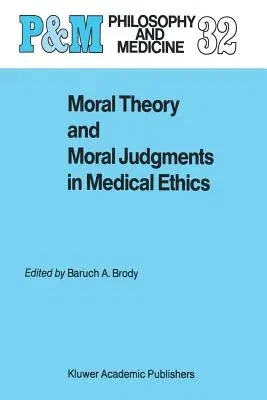Moral Theory and Moral Judgments in Medical Ethics (Softcover Reprint of the Original 1st 1988)Paperback - Softcover Reprint of the Original 1st 1988, 6 October 2011

Qty
1
Turbo
Ships in 2 - 3 days
In Stock
Free Delivery
Cash on Delivery
15 Days
Free Returns
Secure Checkout
Part of Series
Philosophy and Medicine
Print Length
232 pages
Language
English
Publisher
Springer
Date Published
6 Oct 2011
ISBN-10
9401077231
ISBN-13
9789401077231
Description
Product Details
Book Edition:
Softcover Reprint of the Original 1st 1988
Book Format:
Paperback
Country of Origin:
NL
Date Published:
6 October 2011
Dimensions:
22.86 x
15.24 x
1.3 cm
ISBN-10:
9401077231
ISBN-13:
9789401077231
Language:
English
Location:
Dordrecht
Pages:
232
Publisher:
Series:
Weight:
331.12 gm

